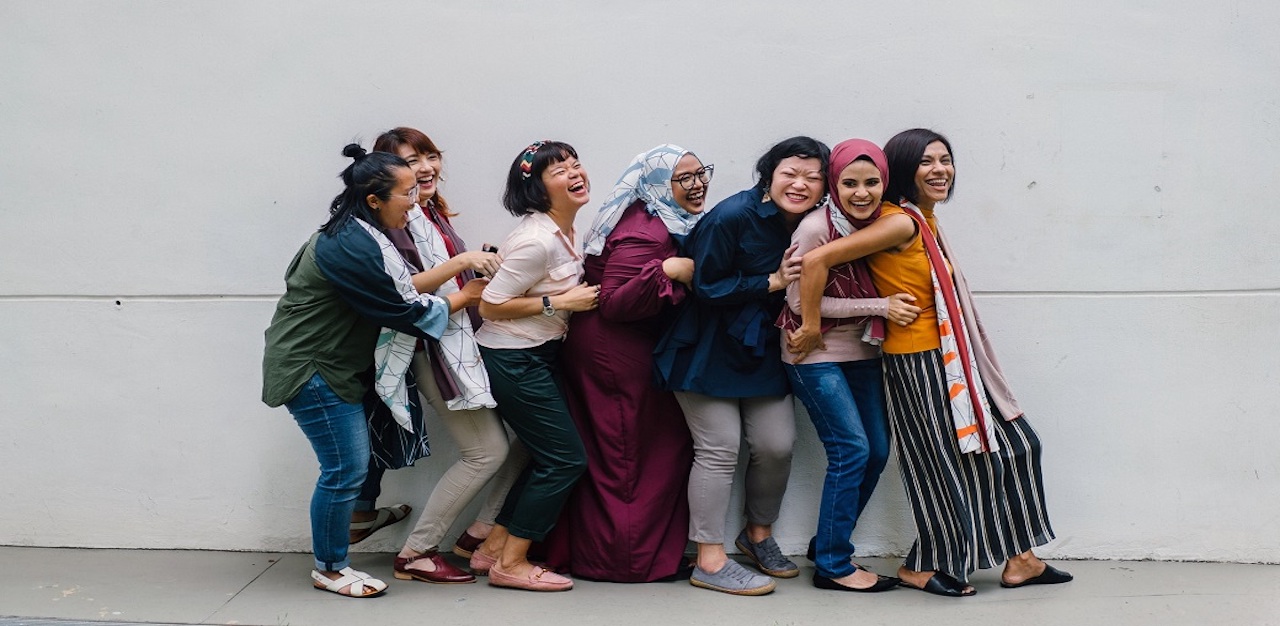2021 is the Year of Celebrating SG Women, declared Minister for Social and Family Development Masagos Zulkifli at its start. He said the aim is to celebrate women’s progress and potential across society as their contributions are integral to the Singapore story.
Building up to the year, Home Affairs and Law Minister K Shanmugam, in September 2020, announced a comprehensive review of issues affecting gender inequality in Singapore. It led to a 2021 white paper that aims to address women-related issues and advocate gender equality and respect for women.
The launch of the Conversations on Singapore Women’s Development in September 2020 is another initiative to understand Singaporeans’ aspirations and ideas on how it can further advance women in Singapore. With these proposals in place, 2021 seems to be a year of celebration for Singaporean women.
While this movement has been commendable in acknowledging the contributions of women and is a nod to the process of creating a more equitable society for women, it overlooks various inequalities that women still face, with links to race, citizenship and class, and this is acutely pointed out by the Association of Women for Action and Research (AWARE) in its interview with The Straits Times in January.
One such group that has been neglected are migrant spouses. They continue to be left out of social assistance and benefits in Budget 2021, and this traps low-income migrant wives married to Singaporeans or permanent residents (PR) in a cycle of poverty and exacerbates gender inequality. A look at the discussions in “Conversations on Singapore Women’s Development”, organised by REACH, an agency in facilitating the Government’s efforts to engage and connect with citizens on national and social issues, also reveals the lack of attention on migrant spouses and the specific struggles they face.
If this gender equality movement fails to address the inequalities of this group of marginalised women in Singapore, can we confidently ‘celebrate’ women of Singapore then?
Who are migrant spouses and why should they be included in the movement?
Migrant spouses married Singapore citizens or migrants who have relocated to Singapore for work and 1 in 4 citizen marriages in 2020 was to a foreigner, the majority of whom are women. Faced with societal pressures, they put spouses and families before their own desires and career.
In an email interview, Ms Shailey Hingorani, Head of Research and Advocacy at AWARE, points out that low-income migrant wives constitute 70 percent of all transnational marriages in Singapore and because of their immigration status, remain invisible and voiceless.
“Being on temporary passes, such as SVP (Social Visit Pass) and LTVP (Long-Term Visit Pass), they have limited rights, protection and access to social benefits. Many lack knowledge of the rights and benefits that they are entitled to, and are left feeling helpless in times of need as they do not know where to seek support for the various challenges,” she says.
As a global city, transnational marriages here are fast-becoming the norm, making it imperative that Singapore accounts for this large group of migrant wives and their challenges.
Furthermore, Ms Hingorani says, migrant spouses contribute not only to the nation but also its workforce in distinct ways. She says many of the migrant spouses “work in foreign national business chambers, in private education teaching foreign languages and as entrepreneurs”. Migrants on work passes and Letters of Consent are also tax residents. Their children are Singaporeans and as mothers, these women contribute as caregivers.
Former Nominated Member of the Parliament (NMP), Anthea Indira Ong, who made a parliamentary speech on the support for transnational families and migrant spouses during the COVID19 and circuit-breaker measures, also says that “[migrant spouses] are “wives of Singaporean men and mothers of Singaporean children. They sustain the lives of Singaporean families, [and are] not here as workers”.
“In fact, we should also celebrate foreign domestic workers, without whom Singaporean women will not be able to fulfil their potential at work and in life,” she adds.
“SG Women surely cannot only mean Singaporean women if this is about improving gender parity and celebrating women’s contributions to Singapore’s economy and society – SG Women must mean all women in Singapore,” the former NMP says.
Ms Hingorani also says that with many migrant spouses contributing to Singapore’s fertility rate, it is even more pertinent to recognise and value their gendered labour. Caregiving work is often seen as unpaid care or invisible work, and more often than not, migrant women are relied upon to provide such care for their families; then should the Year of Celebrating SG Women not celebrate them too?
What are some of the specific challenges that migrant spouses face?
When asked what are the challenges women in Singapore face, chances are words like workplace discrimination, sexual harassment, and entrenched gender stereotypes and sexism will be top of mind with many and they need to be addressed in order for women to advance in Singapore.
Migrant spouses also face these obstacles, but their challenges are also layered by and entangled with additional issues of class, race, and nationality.
To understand their struggles, the intersections of class and nationality with residency, marital, and employment issues must also be looked at. Ms Hingorani says that migrant spouses face problems such as precarious residency status in Singapore, challenging divorce proceedings and limited employment opportunities.
“The existing criteria used to evaluate applicants of LTVP/+ and permanent residency is opaque. From 2009 to 2018, ICA (Immigration and Checkpoints Authority) received an average of about 8,600 applications each year for permanent residency (PR) from foreign spouses of Singapore citizens. Of these applicants, an average of about 4,200 were granted PR each year. The average success rate was around 49 percent. With most migrant spouses remaining on temporary passes, [imagine] the anxiety transnational couples experience every time the window for pass renewal draws near, as there is no guarantee of migrant spouses’ right to continue residing in Singapore,” Ms Hingorani says.
“Moreover, at present migrant wives are only able to renew their LTVP/+ if they are sponsored by their citizen husbands. This institutionally reinforces the former’s dependency on the latter,” she adds.
Ms Lim Shu Yi from Parwani Law LLC also says that a specific issue migrant spouses face is being subjected to the threat of having their Dependant’s Pass cancelled when things go south with their Singaporean husbands. If they have children with their Singaporean spouses, this threat would also mean that they may be separated from their children for an indefinite period of time.
Immigration status certainly proves to be a huge handicap for migrant spouses who are undergoing divorce. Since the migrant wives’ pass renewals are dependent on spousal sponsorship, this severely restricts their ability to engage in divorce proceedings, placing them at the mercy of their husbands.
“While dealing with the breakdown of their relationship with their Singaporean spouses, migrant spouses have an additional hurdle of overcoming and coping with the feelings of loneliness and isolation on their own. This is especially so when their Singaporean spouses are the main social relationship they rely on for emotional support here,” Ms Lim says.
“In addition, any other social relationships they have cultivated in their time here would likely be linked to their Singaporean spouse, and as a result they may not feel secure to rely on these social relationships for emotional support after deciding to undergo a divorce,” the lawyer adds.
When asked if migrant spouses face difficulties in obtaining legal aid, Ms Lim says that they often do not qualify for Legal Aid under the Legal Aid Bureau if they are still on a Dependant’s Pass while in Singapore. They may, however, qualify for the Family Justice Support Scheme or the Ad Hoc Pro Bono Assessment Scheme, if their matter falls outside of the existing legal aid schemes.

On employment, Ms Hingorani says migrant wives are not automatically granted the right to work when they are successful in applying for and getting their LTVP/+, impeding their ability to find work, as potential employers may not be willing to wait for a letter of consent (LOC), especially if they need to fill the positions immediately.
The introduction of the Pre-Approved LOC (PLOC) for LTVP/+ holders who are spouses or unmarried children under the age of 21 of Singaporeans/PRs may have helped to expedite their employment process – as PLOC holders could work for any employer who only need to notify MOM at the start of employment – but Ms Hingorani says this right to work has not been extended to all migrant spouses.
“A 2018 study by AWARE and DOT (Daughters of Tomorrow) of low-income female workers placed in the eldercare industry revealed that many employers have the misconception that LTVP/+ holders contribute to a company’s foreign worker quota, and thus prefer hiring PRs and Singaporeans,” she adds.
A migrant wife’s pain
Ms Slyvia Kin, a migrant spouse and mother of two Singaporean children, struggles with precarious residency status and spousal abuse.
About twelve years ago, Ms Kin experienced abuse by her ex-husband and waited till her children became older before taking the step to end the marriage. She recounts that as a migrant spouse, she “had to depend on [my] ex-husband to renew my LTVP even though [I] already had two sons”, and for the sake of her children, she put up with the abuse in order to obtain residency to care for them.
One can only imagine the difficulties and pain that Ms Kin silently endured for the sake of staying with her children.
Fortunately, after many years, she managed to obtain permanent residency and was then able to acquire legal aid from the lawyer to proceed with the divorce. During the separation, Ms Kin stayed in a women’s shelter before securing an HDB rental unit to live with her sons.
Ms Kin is now in a happier place as she has remarried and has a supportive and loving husband. However, she still faces numerous challenges as a migrant spouse today. These include healthcare, housing, and child custody.
“I have custody of my eldest son, but I cannot stop my ex-husband from taking him out of Singapore. As a permanent resident, I do not have subsidies for healthcare and pay my medical bills [out of pocket]. I am also not able to apply for HDB housing, and I’m not eligible for SkillsFuture credit,” she says.
“As a divorcee and a mother of two Singaporean children, I need subsidies in healthcare and housing and the opportunities to upgrade my skills and knowledge,” she adds.
As the founder of the Facebook group “Migrant and Immigrant Wives of Singapore”, Ms Kin is also in touch with many migrant wives to provide support for them. She says that some of her friends are also struggling with child custody since they have been housewives for many years without any income, are under LTVP/+ passes that do not guarantee their stay in Singapore, and struggle with understanding the legal procedures and communicating in English.
When asked about what she thinks can be done better to support migrant spouses, Ms Kin says that having an organisation that focuses on migrant wives and their challenges will be extremely beneficial to the community. This organisation can provide language classes, focus group discussions for migrant wives, and support them in navigating their specific challenges like marital and childcare problems and managing their own emotional wellbeing.
“We love Singapore as much as the locals do. Our husbands and our children are Singaporean. As a migrant spouse who has Singaporean children, I hope I am treated fairly and equally like everyone else,” she adds.
Proposed regulatory adjustments to end discrimination against migrant spouses

To help migrant spouses facing complex challenges in areas such as immigration, divorce, and employment, AWARE, in its Reimagining Equality endeavour this year, held discussions with 17 migrant spouses and Singaporean citizens married to migrants to get a better sense of their concerns and suggestions.
The participants expressed their hopes that the automatic right to work would be granted to all migrant spouses without the need to apply for a Pre-approved Letter of Consent or Letter of Consent. This should include divorced migrant spouses still living in Singapore because they have custody of their Singaporean children.
Participants also hoped that migrant spouses would be allowed to do app-based freelance work, and that LTVP/+ holders could easily register themselves as self-employed.
They agreed that a multilingual one-stop information portal consolidating and communicating policies which impact migrant spouses and transnational families would be greatly beneficial. Such information should include the right of migrant spouses to employment, housing options, legal rights, divorce, and healthcare insurance options.
Adding on to these proposed changes, Ms Hingorani says these migrant spouses should be considered as part of the Singapore core and all social assistance schemes extended to them. Ms Ong also says that the state should include low-wage migrant spouses in social assistance and COVID-19 relief schemes, just like their Singaporean counterparts. She adds that this should not be done on an ad hoc case-by-case basis.

On immigration laws, the Former NMP believes that LTVP renewal should be made automatic. There should also be a clearly defined pathway towards citizenship, she says. Ms Hingoranialso highlights the need for changes in immigration laws to protect the rights of migrant spouses.
“More so the criteria for obtaining LTVP/+ and Permanent Residency should be made more transparent. There should be clear and timed access to PR and citizenship for migrant spouses to secure more rights for this group of people who have committed themselves to being part of the Singaporean community,” says Ms Hingorani.
“The government needs to let migrant spouses [who suffered abuse] to renew LTVP/+ independently of their citizen spouses. Currently, so long as migrant women remain married, they are unable to obtain sponsorship from anyone besides their spouse. The current policy disempowers abused migrant wives and forces them into silence as they risk their right to remain in the country if they anger their husbands,” she adds.
Join the conversations on TheHomeGround Asia’s Facebook and Instagram, and get the latest updates via Telegram.














